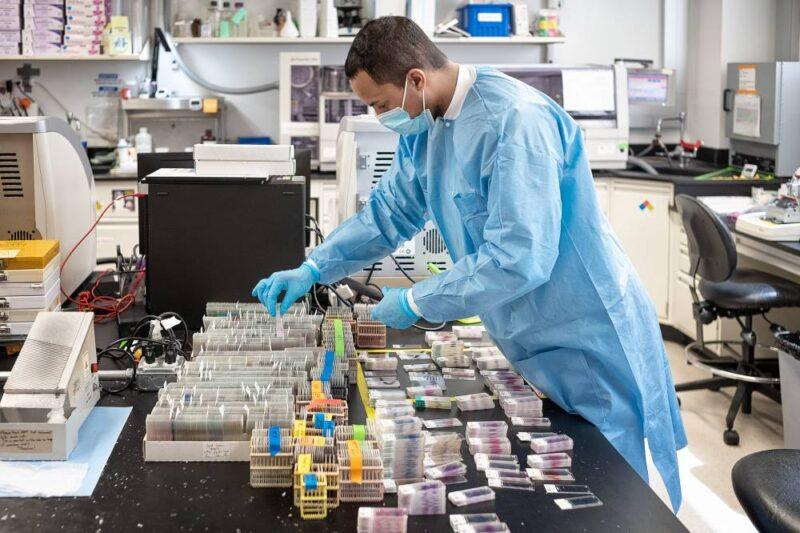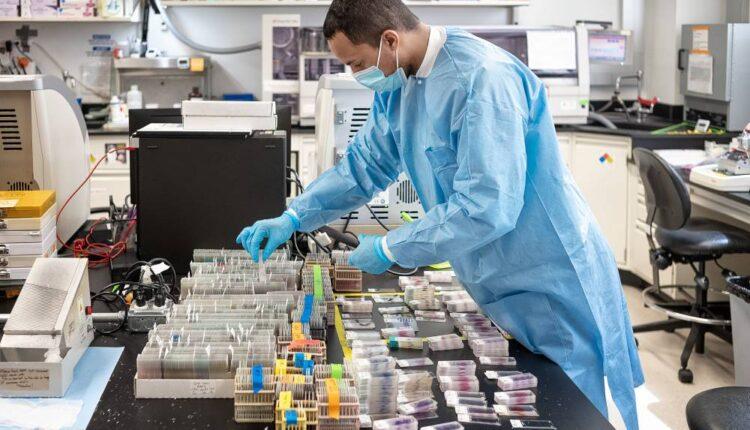
- The researchers asked more than 3,000 people to volunteer for antibody testing.
- The results indicated that between 48,000 and 81,000 people could have been infected with Covid-19 in Santa Clara County.
- That's far higher than the official numbers.
Histowiz lab scientists preparing to test COVID-19 samples from recovered patients on April 8, 2020 in Brooklyn, New York.Misha Friedman | Getty Images
How prevalent is Covid-19?
It's a difficult question to answer, given the lack of available tests and the fact that some people who have been exposed to the virus exhibit mild symptoms or no symptoms at all.
Two research groups, assisted by a team of volunteers, sought to get a better sense of the true prevalence in Santa Clara County in Northern California, which was one of the first places in the U.S. where community spread was detected. They tested 3,300 people by asking the volunteers to show up to one of three testing sites locally.
In a study published on Friday, the researchers, many of whom hailed from Stanford University, noted that the results suggest that Covid-19 could be far more widespread than the official counts suggest.
Specifically, they estimate that between 2.5% and 4.2% of people in Santa Clara County may have antibodies. (The range is a result of different models used to extrapolate the test results to a representative population.)
"These prevalence estimates represent a range between 48,000 and 81,000 people infected in Santa Clara County by early April, 50 (to) 85-fold more than the number of confirmed cases," the authors wrote.
Antibody tests look for signs that a patient's immune system has had a response after being infected with the virus. Such tests are by no means perfect indicators that a person has truly been exposed, and studies show that there are varying levels of quality. Some of the tests are providing false reassurance, while others are offering false answers. As scientists have stressed, having a positive antibody result does not mean the person is immune to the virus.
VIDEO1:0101:01Wondering if insurance will cover the coronavirus – here is what you need to knowInvest in You: Ready. Set. Grow.
But such tests can be helpful to researchers looking to get a more accurate sense of how widespread the virus is.
Still, experts warn that we should not draw broader assumptions about Covid-19 based on a study that's limited to the Bay Area. John Brownstein, an epidemiologist at Boston Children's Hospital, cautions that the study recruited the volunteers via Facebook ads and that might bias the results toward people who are more tech savvy. But he also said that there's a recognition in the filed that the numbers of people infected are far higher than the official numbers.
Ultimately, he said, "It adds to growing body of work that suggests a huge amount of cases that went undetected."
VIDEO2:3002:30New York struggling with 2,000 new coronavirus cases a day: CuomoThe Bottom Line
Source: cnbc.com

